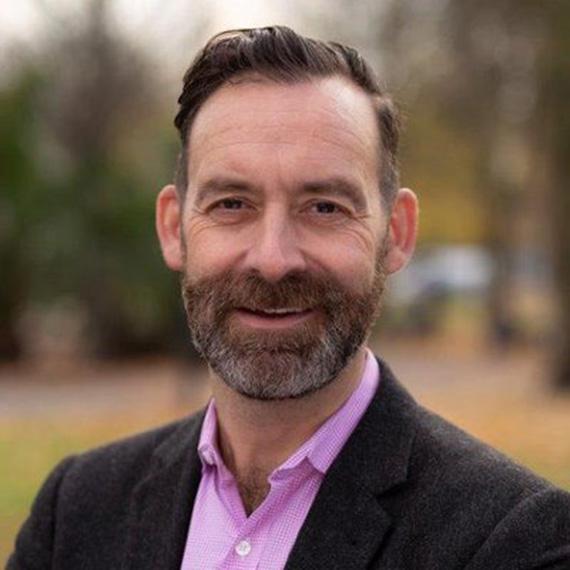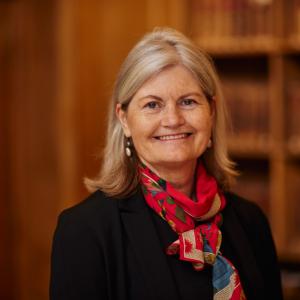Book Launch - Tackling Torture: Prevention in Practice by Malcolm Evans
Professor Sir Malcolm Evans, KCMG, OBE, FLSW, Principal of Regent's Park College
Rupert Skilbeck, Director of REDRESS
Dr Silvia Casale, independent consultant on the deprivation of liberty and human rights
Dr Rosa Freedman, Professor of Law Conflict and Global Development
The Bonavero Institute of Human Rights is delighted to host the launch of the book Tackling Torture: Prevention in Practice by Malcolm Evans.
How big a problem is torture? Are the right things being done to prevent it? Why does the UN appear at times to be so impotent in the face of it?
In this vitally important work, Malcolm D. Evans tells the story of torture prevention under international law, setting out what is really happening around the world. Challenging assumptions about torture’s root causes, he calls for what is needed to enable us to bring about change.
The author draws on over ten years’ experience as Chair of the UN Subcommittee on Prevention of Torture to give a frank account of the remarkable capacities of this system, what it has achieved in practice, or not been able to achieve – and most importantly, why.

The sculpture on the cover of the book, titled ‘Valley of the Shadow’, emerged unexpectedly from the stone for sculptor Deborah Harrison. The figure is exhausted, but otherwise healthy, with the different colours of the stone suggesting that he is heavily bruised. His legs emerge from the raw stone as if from mud. Sir Malcolm Evans, the former chair of the United Nations Subcommittee for the Prevention of Torture, was instantly drawn to the sculpture, which now sits in his front room. Having it in such a central place highlights the need to acknowledge that torture – which is so often hidden and ignored – is a part of our lives. For those who have endured torture, the experience will always be with them. But it is also a part of life in that many of us live in communities where torture is allowed to be a part. Sir Malcolm has described how ‘the book and the image in my mind have become fused’ and that the sculpture was a ‘very significant and major spur’ to make the book happen.
Author
Professor Sir Malcolm Evans, KCMG, OBE, FLSW

Sir Malcolm Evans is Principal of Regent's Park College, Oxford. Until 2022 he was Professor of Public International Law at the University of Bristol, where he also served as Head of the School of Law and Dean of the Faculty of Social Sciences and Law.
His particular areas of academic expertise include torture and torture prevention, the protection of religious liberty under international law and the international law of the sea, in particular the delimitation of maritime boundaries. From 2009 - 2020 he was a member, and from 2011- 2020 Chair, of the UN Subcommittee for Prevention of Torture (the SPT). From 2015-2022 he was a Member of the Statutory Panel of Inquiry into Child Sexual Abuse in England and Wales (IICSA). From 2002 - 2013 he was a member of the OSCE ODIHR Advisory Council on the Freedom of Religion or Belief. He was General Editor of the International and Comparative Law Quarterly from 2013-2023 and is Co-Editor in Chief of the Oxford Journal of Law and Religion. Since 2010 he has been a member of the Foreign Secretary's Advisory Group of Human Rights and in 2021 he was elected an Associate Member of the Institut du Droit Internationale.
Discussants
Rupert Skilbeck

Rupert Skilbeck is the Director of REDRESS, an international human rights organisation based in London and The Hague that supports victims of torture to bring legal cases to obtain justice and reparation.
Skilbeck is a barrister who specialises in human rights law and international criminal law, who has directed strategic litigation around the world. Before joining REDRESS in 2018, was the Litigation Director at the Open Society Justice Initiative, where he oversaw human rights litigation in more than 100 cases including torture, deaths in custody, discrimination, fair trial rights, corruption, national security, and international criminal law. Prior to this he worked with international and hybrid criminal tribunals in Cambodia, Bosnia and Herzegovina, and Sierra Leone. In 2006 he was appointed by the United Nations as the Principal Defender for the Extraordinary Chambers in the Courts of Cambodia. He was also the director of Odsjek Krivicne Odbrane, the criminal defence section of the State Court in Sarajevo, and the defence advisor at the Special Court for Sierra Leone. From 1995 to 2004 he practiced primarily at the criminal bar in London and on the Midland circuit.
Professor Juan Méndez

Juan E. Méndez is Professor of Human Rights Law in Residence at the American University-Washington College of Law and was the UN Special Rapporteur on Torture and Other Cruel, Inhuman and Degrading Treatment or Punishment from November 2010 to October 31, 2016. In July 2020 he was appointed to the Board of Trustees of the UN Voluntary Fund for the Victims of Torture, for a three’year term. In January 2022 he was appointed by the UN Human Rights Council to a three-year term as a member of the International Independent Expert Mechanism on Racial Justice and Law Enforcement.
In 2020 and 2021 he served as one of five members of the International Independent Group of Experts (GIEI for its acronym in Spanish) that investigated and reported on violations of human rights and acts of violence in Bolivia in the context of the elections and change of government in late 2019. Between April and December 2017 he was a member of the Selection Committee (Comité de Escogencia) that appointed magistrates to the Special Jurisdiction for Peace and members of the Truth Commission contemplated in the Peace Accords between Colombia and the FARC guerrillas.
He is the author – with Marjorie Wentworth – of Taking a Stand (New York: Palgrave-MacMillan, October 2011) and of the Spanish and updated version (Un Puesto de Lucha) published by Fondo de Cultura Económica, Mexico in 2021. He was elected a Commissioner, International Commission of Jurists (Geneva, Switzerland) in January 2017 and has been an advisor on crime prevention to the Prosecutor, International Criminal Court. In 2010 and 2011 he was also Co-Chair of the Human Rights Institute of the International Bar Association.
Until May 2009 he was the President of the International Center for Transitional Justice (ICTJ) and Scholar-in-Residence at the Ford Foundation in New York (summer 2009). Concurrent with his duties at ICTJ, he was Kofi Annan’s Special Advisor on the Prevention of Genocide (2004 to 2007). Between 2000 and 2003 he was a member of the Inter-American Commission on Human Rights of the Organization of American States and served as its President in 2002.
He has taught international law and human rights at Oxford University (UK) since 1997 and to the present, as well as at Notre Dame Law School (USA), Georgetown and the Johns Hopkins University School of Advanced International Studies. He worked for Human Rights Watch in Washington and New York (1982-1996) and as Executive Director of the Inter-American Institute on Human Rights in San Jose, Costa Rica (1996 – 1999).
Dr Silvia Casale

Dr Silvia Casale CMG is an independent criminologist. She has worked as a member of the Parole Board (England & Wales), independent consultant to HM Prisons Inspectorate and a Northern Ireland Sentence Review Commissioner under the Good Friday Agreement.
She chaired the CPT from 2000 to 2007 and the SPT from February 2007 to February 2009. In 2010 she worked with the Council of Europe’s peer to peer capacity building programme involving members of European national preventive mechanisms and experts from the CPT, the SPT and the APT. In 2016 she was a founding member of the NPM Observatory, an NGO bringing together international experts in preventive monitoring to support NPMs by shadowing their work in places of deprivation of liberty and exchanging expertise.
In 2010 she became a member of the International Contact Group for the peace process in the Basque Country and was a member of the Hillsborough Article 2 Reference Group (to give effect to the ECHR obligation to involve the families and survivors in the investigative procedure). She conducted an independent review of the IPCC’s investigation of a death of custody and from 2013 to 2021 she was a member of the Daniel Morgan Independent Panel inquiring into the role of corruption in relation to a murder.
Professor Rosa Freedman

Professor Freedman researches on the United Nations, and has a number of interests within that area: human rights bodies, creation and implementation of international human rights law, human rights of vulnerable groups (with specific focus on women's rights, SOGI rights, and freedom of religion/belief), accountability for human rights abuses committed by UN actors, preventing sexual exploitation and abuse in conflict and crisis zones, and the intersection between international law and international relations.
Rosa has published extensively on the United Nations Human Rights Council and on the United Nations Special Procedures system, as well as on the Haiti Cholera Claims and on sexual exploitation and abuse committed by peacekeeping personnel and humanitarian actors. She fuses doctrinal and empirical research methods, and she deploys interdisciplinary lenses to inform and underpin her findings and analysis. Her work has been funded by the Arts and Humanities Research Council, British Academy, the Economic and Social Research Council, the Jacob Blaustein Institute for the Advancement of Human Rights, and the Society of Legal Scholars.
Rosa joined the University of Reading as the inaugural Chair of Law, Conflict and Global Development and the Director of the Global Development Division, having previously taught at Birmingham Law School and at Queen Mary University of London. She is a Research Fellow at the London Centre for the Study of Contemporary Antisemitism. Rosa hold various advisory positions, including being a member of the UN Secretary-General's Civil Society Advisory Board on preventing sexual exploitation and abuse, a member of the FCDO Steering Committee on the Global Framework, and the Civil Society Workstream Lead on the Prevention Project. Rosa works with a broad range of stakeholders, including international organisations, national governments, and civil society actors, and is regularly invited to provide expertise to those actors. She frequently appears in appears in print, online, radio, TV and documentary media.
Chair
Professor Kate O'Regan

Kate O'Regan is the inaugural Director of the Bonavero Institute of Human Rights and a former judge of the South African Constitutional Court (1994 – 2009). In the mid-1980s she practiced as a lawyer in Johannesburg in a variety of fields, but especially labour law and land law, representing many of the emerging trade unions and their members, as well as communities threatened with eviction under apartheid land laws. In 1990, she joined the Faculty of Law at UCT where she taught a range of courses including race, gender and the law, labour law, civil procedure and evidence. Since her fifteen-year term at the South African Constitutional Court ended in 2009, she has amongst other things served as an ad hoc judge of the Supreme Court of Namibia (from 2010 - 2016), Chairperson of the Khayelitsha Commission of Inquiry into allegations of police inefficiency and a breakdown in trust between the police and the community of Khayelitsha (2012 – 2014), and as a member of the boards or advisory bodies of many NGOs working in the fields of democracy, the rule of law, human rights and equality.



